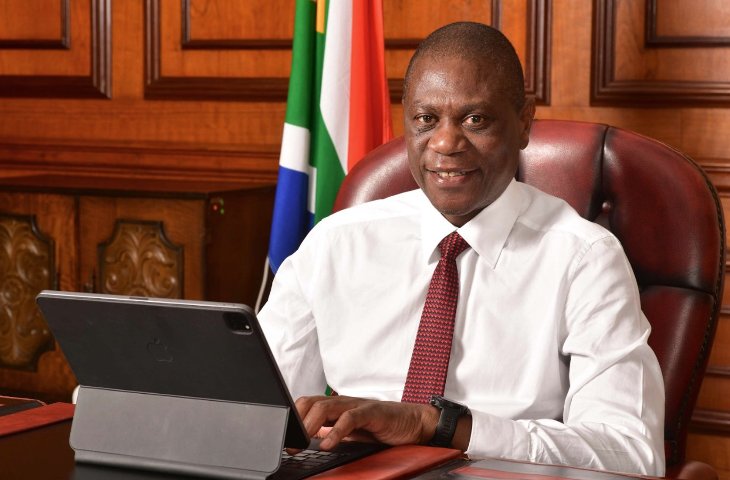SA Ratifies AfCFTA Protocol to Empower Women and Youth in Trade
The ratified protocol seeks to remove structural barriers that have historically excluded women and youth from participating fully in trade ecosystems.

- Country:
- South Africa
In a transformative move to promote inclusive economic participation, South Africa has officially ratified the Protocol on Women and Youth in Trade under the African Continental Free Trade Area (AfCFTA). The announcement was made by Deputy President Paul Mashatile during his address at the G20 Intergenerational Roundtable, hosted by the National Youth Development Agency (NYDA) on Friday.
Hailed as a decisive policy milestone, the ratification underscores South Africa’s commitment to mainstreaming gender and youth equity within intra-African trade policy and strengthening the continent’s developmental and demographic agenda.
“This milestone is not just a symbolic gesture; it is a decisive policy action,” said Mashatile. “It signals our intent to integrate women-led and youth-led enterprises into regional and global value chains.”
Operationalising Equity in Trade
The ratified protocol seeks to remove structural barriers that have historically excluded women and youth from participating fully in trade ecosystems. It mandates:
-
Prioritised access to trade-related information, financing, and markets
-
Supportive legal and policy environments for women- and youth-owned businesses
-
The dismantling of administrative red tape and discriminatory trade practices
By embedding these priorities into the framework of AfCFTA, the protocol represents a leap forward in designing a trade system that reflects the continent’s youthful and diverse demographics.
“Youth remain on the margins of formal trade. This protocol helps rewire trade systems to reflect our demographic and developmental realities,” said Mashatile.
Redefining Development: From Beneficiaries to Co-Architects
Mashatile emphasized the need to integrate young people into governance and economic frameworks not just as beneficiaries—but as co-architects of a developmental state.
“South Africa’s ratification supports our broader message: young people are central to building capable, ethical, and developmental states.”
In this spirit, government is working to institutionalise intergenerational co-leadership—moving beyond token consultation toward shared decision-making power. This is in line with South Africa’s aspirations for its G20 presidency, where youth inclusion will be anchored across all pillars, including:
-
Climate finance
-
Digital transformation
-
Trade facilitation
-
Skills development and mobility
Tackling Bureaucracy and Creating Enabling Environments
Deputy President Mashatile also addressed the challenges faced by youth entrepreneurs, including bureaucratic hurdles and limited access to support systems.
“Young people complain about red tape in accessing services designed to scale their entrepreneurial efforts. This must change.”
To address this, a specialised unit within the Presidency has been tasked with reforming the business climate. The team is working across government departments to:
-
Streamline mining licence applications
-
Improve transport permits for tourism
-
Simplify visa and work permit processes
-
Provide regulatory support to early childhood development (ECD) services
-
Create a more supportive framework for the informal economy
Expanding Regional and Global Opportunities
The ratification also opens the door to deeper regional integration, allowing youth and women entrepreneurs in South Africa to more easily engage in cross-border trade. This is essential to unlocking the potential of the AfCFTA, the largest free trade area in the world by the number of participating countries.
South Africa is also collaborating with regional blocs, global donors, and private sector partners to implement targeted reforms that will enable:
-
Easier access to capital
-
Tailored entrepreneurial support
-
Stronger institutional capacity for inclusive trade
A Call to Action: Youth as Nation Builders
Mashatile’s speech was as much a policy statement as it was a call to action. He urged young people to take ownership of their future and participate actively in shaping their country and continent.
“Youth are not merely beneficiaries of policy; they are builders of nations. The future is yours, and you are the future. Stand up, persevere, and confront every challenge with persistence.”
He called on multilateral forums such as the G20 to recognise and reflect Africa’s youthful character in their global agendas, and to support initiatives that foster leadership, innovation, and economic empowerment among young Africans.
A Bold Step Toward Inclusive Growth
South Africa’s ratification of the AfCFTA Protocol on Women and Youth in Trade is more than a diplomatic formality—it is a strategic and inclusive development intervention. It reflects a growing recognition that sustainable growth must be participatory, equitable, and reflective of Africa’s demographic realities.
As the country advances its economic and political vision, this protocol positions it at the forefront of regional integration, trade innovation, and youth leadership in Africa.










